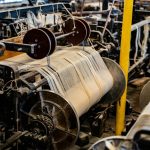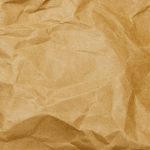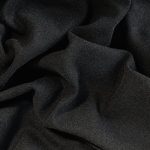When selecting fabrics for reusable shopping bags, you need to take into account both durability and washability. The right material can make a significant difference in how well your bags hold up over time, especially under heavy loads. Some fabrics excel in strength, while others are easier to clean. Understanding these factors can help you choose the best option for your needs. But what specific materials should you focus on to guarantee longevity and practicality?
Table of Contents
Key Takeaways
- Select heavier materials like canvas or jute for enhanced durability against wear and tear during regular use.
- Choose fabrics with high tensile strength, such as nylon or polyester, to withstand stretching and pulling while carrying groceries.
- Opt for machine-washable materials like cotton or polyester to ensure easy cleaning and maintenance over time.
- Evaluate water resistance and UV protection features for fabrics to enhance the longevity of reusable shopping bags.
- Consider the balance between durability and washability to meet practical needs while maintaining bag hygiene and appearance.
Fabric Options for Reusable Bags
When you’re choosing fabrics for reusable shopping bags, consider both durability and environmental impact.
Cotton is a popular choice; it’s biodegradable and sturdy but may require more water to produce.
Recycled polyester, made from plastic bottles, offers a strong, lightweight option that helps reduce waste.
Jute, a natural fiber, is eco-friendly and provides a rustic look, though it may not be as water-resistant.
Nylon is another durable choice; it’s lightweight and resistant to wear, but it’s not biodegradable.
Look for fabrics that are easy to clean and maintain, as this will extend the life of your bags.
Opt for fabrics that are simple to clean and maintain to enhance the longevity of your shopping bags.
Prioritize materials that align with your values while ensuring they meet your practical shopping needs.
Choose wisely for a sustainable future!
Durability Factors to Consider
Choosing the right fabric is just the beginning; understanding durability factors is essential for guaranteeing your reusable shopping bags stand the test of time.
First, consider the fabric weight; heavier materials generally resist wear and tear better than lighter ones. Next, examine the fabric’s tensile strength, which determines its ability to withstand stretching and pulling.
Look for materials that resist fraying and tearing, like nylon or canvas. Additionally, choose fabrics treated for water resistance and UV protection, as these features enhance longevity.
Finally, evaluate stitching quality; reinforced seams can prevent bag failure under heavy loads. By focusing on these durability factors, you’ll guarantee your reusable shopping bags remain reliable companions for your shopping trips.
Washability of Different Materials
Many shoppers overlook the importance of washability when selecting fabrics for reusable shopping bags.
Choosing a fabric that’s easy to clean can save you time and maintain hygiene. Here are some materials to take into account:
Opting for easy-to-clean fabrics ensures your reusable shopping bags remain hygienic and last longer.
- Cotton: Machine washable and retains strength after multiple washes, making it a practical choice.
- Polyester: Quick-drying and resistant to shrinking, it’s great for maintaining shape and color.
- Canvas: Durable and washable, but check for specific care instructions to avoid damage.
- Nylon: Lightweight and water-resistant; it can often be wiped clean or machine washed, depending on the weave.
Selecting the right fabric for washability will guarantee your reusable shopping bags stay fresh and functional for longer.
Eco-Friendliness and Sustainability of Fabrics
When choosing fabrics for your reusable shopping bags, consider sustainable materials that minimize environmental impact.
Look for options that are biodegradable or easily recyclable to guarantee your bags won’t harm the planet.
Sustainable Material Choices
While the market offers a variety of fabrics for reusable shopping bags, selecting sustainable materials is essential for minimizing environmental impact.
By choosing eco-friendly fabrics, you help protect our planet. Consider these sustainable options:
- Organic Cotton: Grown without harmful pesticides, it’s both durable and biodegradable.
- Hemp: Requires minimal water and pesticides, making it a strong and sustainable choice.
- Recycled PET (rPET): Made from recycled plastic bottles, it reduces waste and conserves resources.
- Jute: A natural fiber that’s biodegradable and highly durable, perfect for heavy loads.
Biodegradability and Recycling Options
Understanding the biodegradability and recycling options of fabrics is essential in making eco-friendly choices for reusable shopping bags. When selecting a fabric, consider its ability to decompose over time. Natural fibers like cotton and linen break down more easily than synthetic materials, which can linger in landfills for years.
Look for fabrics labeled as biodegradable or compostable, ensuring they won’t harm the environment. Additionally, check for recycling options available in your area. Some fabrics, like polyester, can be recycled but often require specialized facilities.
Cost Comparison of Fabric Choices
When choosing fabrics for your reusable shopping bags, it’s crucial to evaluate the material price range.
While some options might be more affordable upfront, think about the long-term value they offer. Investing in durable fabrics can save you money over time, making it a smart choice for both your wallet and the environment.
Material Price Range
Choosing the right fabric for your reusable shopping bags can greatly impact your budget.
Different materials come with varying price points, and understanding these can help you make an informed decision.
Here’s a quick comparison of common fabric choices:
- Cotton: Generally affordable, ranging from $2 to $5 per yard.
- Polyester: Typically costs between $1.50 and $4 per yard, depending on quality.
- Canvas: A bit pricier, you’ll pay around $5 to $10 per yard for durable options.
- Non-woven polypropylene: This budget-friendly choice usually ranges from $0.50 to $2 per yard.
Long-Term Value Considerations
While the initial cost of fabric plays a considerable role in your decision, long-term value considerations are just as important. When you choose a fabric, think about its durability and how often you’ll need to replace it.
For instance, while cotton might be cheaper upfront, it can wear out quickly, leading to more frequent purchases. On the other hand, materials like polyester or canvas may have a higher initial price but offer greater longevity, saving you money over time.
Additionally, consider how easy the fabric is to clean; a washable option can extend its life considerably. Ultimately, investing in a durable fabric not only reduces your costs in the long run but also supports sustainability, making it a wise choice for reusable shopping bags.
Practicality for Grocery Shopping
Since grocery shopping often involves carrying various items, the practicality of your reusable shopping bags becomes essential. You want bags that can handle your needs efficiently.
Here are some key features to evaluate for maximum practicality:
- Size Options: Choose bags in various sizes to accommodate everything from small produce to large bulk items.
- Sturdiness: Look for bags that can hold heavy loads without tearing, ensuring your groceries stay safe.
- Easy Storage: Select foldable designs that fit easily in your car or kitchen drawer when not in use.
- Comfortable Handles: Opt for bags with sturdy, cushioned handles to make carrying easier, especially on longer shopping trips.
With the right bags, grocery shopping becomes a breeze!
Strength and Longevity of Common Fabrics
When selecting fabrics for reusable shopping bags, it’s essential to take into account their strength and longevity. Fabrics like canvas and denim are excellent choices, as they’re sturdy and can withstand heavy loads. These materials resist tearing, making them ideal for carrying groceries.
On the other hand, lightweight fabrics like non-woven polypropylene offer decent durability but mightn’t last as long under heavy use. Consider the fabric’s thread count too; a higher thread count usually means better strength.
Maintenance Tips for Reusable Bags
Even the sturdiest fabrics require proper care to maintain their strength and longevity.
To keep your reusable bags in top shape, follow these maintenance tips:
- Wash Regularly: Clean your bags after every few uses, especially after carrying food items.
- Use Mild Detergent: Stick to gentle detergents to avoid damaging the fabric.
- Air Dry: Instead of using a dryer, hang your bags to dry. This prevents shrinkage and maintains the shape.
- Store Properly: Keep your bags in a cool, dry place, away from direct sunlight to prevent fading.
Making an Informed Choice for Your Needs
How do you choose the right fabric for your reusable shopping bags? Start by considering your specific needs. If you often carry heavy groceries, look for durable fabrics like canvas or nylon that can withstand weight without tearing.
For everyday use, lightweight options like recycled PET may work well.
Next, think about washability. If you plan to use your bags frequently, choose materials that are easy to clean, such as cotton or polyester.
Additionally, consider your environmental impact; organic fabrics or recycled materials can be a more sustainable choice.
Lastly, evaluate aesthetics. Select colors and patterns that reflect your style, making your bags something you enjoy using.
Balancing durability, washability, and personal preference will help you make an informed decision.
Frequently Asked Questions
How Can I Customize My Reusable Bag Fabric Choice?
You can customize your reusable bag fabric choice by selecting patterns or colors that reflect your style. Consider materials like cotton or canvas for comfort and functionality, ensuring your bag stands out and meets your needs.
What Is the Best Fabric for Heavy Items?
When carrying heavy items, you’ll want a sturdy fabric like canvas or ripstop nylon. These materials offer strength and durability, ensuring your bag supports the weight without tearing or losing shape during use.
Can I Recycle My Old Reusable Bags?
Can you recycle your old reusable bags? Absolutely! Many recycling centers accept them, or you can donate them. Just check local guidelines, since not all bags are recyclable. It’s a great way to reduce waste!
How Do I Store My Reusable Bags Properly?
To store your reusable bags properly, fold them neatly and keep them in a designated spot, like a drawer or a basket. This way, you’ll always know where they are when you need them.
Are There Any Certifications for Eco-Friendly Fabrics?
Think of eco-friendly fabrics as the green heroes of the textile world. Yes, there are certifications like GOTS and OEKO-TEX that verify sustainability. They guarantee the materials meet strict environmental and social criteria for responsible production.
- Does Chiffon Fabric Stink - July 15, 2025
- Does Chiffon Fabric Affect the Economy - July 15, 2025
- Does Cotton Fabric Have a Nap - July 15, 2025







